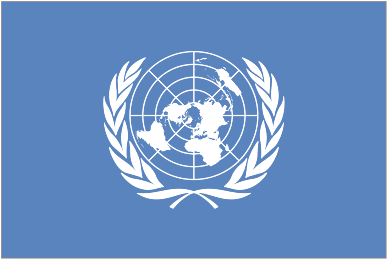
With as many as two million people affected by the ongoing conflict in Syria, Secretary-General Ban Ki-moon today renewed his call on all parties to put an end to armed violence and prevent further bloodshed.
“More fighting is not the answer. Further militarization of this conflict will only perpetuate the devastation and prolong the suffering. A sectarian civil war would also gravely imperil Syria’s neighbors,” Mr. Ban told reporters at United Nations Headquarters in New York.
He said the “tragic and intolerable” situation in Syria was foremost on his mind during his just-concluded visits to China, south-eastern Europe and London, where he met with the Joint Special Envoy for the UN and the League of Arab States for the Syrian Crisis, Kofi Annan.
Mr. Annan is working for a peaceful resolution to the conflict, but he needs the international community’s united and concrete support to succeed, said the Secretary-General.
Mr. Ban noted that the Syrian Government is adding to its “brutal crackdown” by attacking heavily populated areas with fighter aircraft and helicopters. He also noted that the armed opposition groups have also stepped up their attacks.
“Each day, as the violence spirals, more Syrians are killed, injured, tortured or forced to flee their homes or their country,” he stated.
He voiced deep concern about the impact of shelling and use of other heavy weapons on civilians in various locations around the country, particularly in the city of Aleppo, where violence over recent days has already caused a large number of civilians to flee their homes.
Reiterating his concern about weapons of mass destruction, including chemical weapons, Mr. Ban stated that any use of such weapons would be an “outrageous crime” and a major concern for the entire international community.
“We are continuously assessing the situation and our options,” said Mr. Ban. “We have also intensified our humanitarian operations. As many as two million people are affected by violence. The only solution is a Syrian-led transition that meets the legitimate aspirations of the Syrian people.”
He added that the UN Supervision Mission in Syria (UNSMIS) remains a key tool, and the six-point plan presented by the Joint Special Envoy and the June communique of the UN-backed Action Group on Syria – which called for the establishment of a transitional governing body, with full executive powers, as part of important agreed principles and guidelines for a Syrian-led political transition – remain the foundations for a peaceful resolution.
Mr. Annan’s six-point plan calls for an end to violence, access for humanitarian agencies to provide relief to those in need, the release of detainees, the start of inclusive political dialogue, and unrestricted access to the country for the international media.
“I call on all sides to take immediate steps to meet the Security Council requirements, and give Syria the chance it needs to move beyond the violence and onto the path to peace,” the UN chief said.
Mr. Ban’s comments came just hours after the acting head of UNSMIS, Lieutenant General Babacar Gaye, told reporters in the Syrian capital, Damascus, that he witnessed heavy shelling in the city of Homs during a visit to the area yesterday, and voiced concern about ongoing fighting in Aleppo.
“My observers there have reported an upsurge in the violence, with helicopters, tanks and artillery being used,” Lieutenant General Gaye said. “I call on the parties, again as stated by the Joint Special Envoy, to exercise restraint and avoid further bloodshed – it is imperative that both sides respect international humanitarian law and protect civilians.”
UNSMIS is tasked with monitoring the cessation of violence in Syria, as well as monitoring and supporting the full implementation of the six-point peace plan put forward by Mr. Annan.